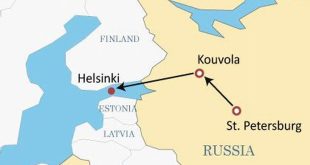What reasons caused the confederates to fiercely defend Petersburg? Richmond, Virginia, the Confederate capital, was only 25 miles from Petersburg, giving it strategic importance. Because of its key railroad junction, Petersburg served as a vital supply route for the Confederate army. Since Petersburg is located on the Appomattox River, it cannot be attacked from the south. Petersburg was vigorously defended by the Confederates due to all of these elements.
Editor’s Notes: “Why did the confederates defend petersburg so fiercely” have published today April 11, 2023. The fall of Petersburg on April 2, 1865, marked the beginning of the end for the Confederacy. This topic critical and important because Petersburg’s strategic significance and its proximity to Richmond made it a key target for Union forces. The city’s determined defense by the Confederates prolonged the war and resulted in significant casualties on both sides.
Our team dedicate on research and analysis finding, We’ve put together this quick guide to “why did the confederates defend petersburg so fiercely” to assist our target audience make the best decision.
Key Differences or Key Takeaways
| Petersburg | Other cities | |
|---|---|---|
| Strategic importance | High, due to its proximity to Richmond and its role as a railroad junction | Varies |
| Defensibility | High, due to its location on the Appomattox River | Varies |
| Outcome of the battle | Confederate defeat | Varies |
Main Article Topics
- The strategic importance of Petersburg
- The defenses of Petersburg
- The Battle of Petersburg
- The fall of Petersburg
- The significance of Petersburg
Why did the Confederates defend Petersburg so fiercely?
Petersburg, Virginia, was a vital strategic location for the Confederates during the American Civil War. There are 10 key aspects that explain why the Confederates defended Petersburg so fiercely:
- Proximity to Richmond: Petersburg was only 25 miles from Richmond, the Confederate capital, making it a key defensive position.
- Railroad junction: Petersburg was a major railroad junction, which made it essential for supplying the Confederate army.
- Location on the Appomattox River: Petersburg’s location on the Appomattox River made it difficult for Union forces to attack from the south.
- Strong defenses: The Confederates built a series of fortifications around Petersburg, making it one of the most heavily fortified cities in the Confederacy.
- Determined defenders: The Confederate soldiers who defended Petersburg were some of the most experienced and determined in the army.
- Strategic importance: Petersburg was a key strategic location, and its loss would have been a major blow to the Confederacy.
- Political significance: Petersburg was the second-largest city in Virginia, and its loss would have been a major propaganda victory for the Union.
- Economic importance: Petersburg was a major industrial center, and its loss would have further crippled the Confederate economy.
- Psychological importance: Petersburg was a symbol of Confederate resistance, and its loss would have demoralized the Confederate troops.
- Historical significance: Petersburg was the site of several key battles during the Civil War, and its defense is considered one of the most heroic episodes in Confederate history.
The Confederates’ fierce defense of Petersburg ultimately failed, and the city fell to Union forces in April 1865. However, the 10 key aspects listed above explain why the Confederates fought so hard to hold on to this vital strategic location.
Proximity to Richmond
The proximity of Petersburg to Richmond was a major factor in the Confederates’ decision to defend it so fiercely. Richmond was the Confederate capital, and its fall would have been a major blow to the Confederate war effort. Petersburg was also a key supply route for Richmond, and its loss would have made it difficult for the Confederates to supply their troops.
-
Facet 1: Strategic importance
Petersburg’s proximity to Richmond made it a strategically important location. The Confederates knew that if they lost Petersburg, the Union would be able to easily attack Richmond.
-
Facet 2: Supply route
Petersburg was a major supply route for Richmond. The Confederates relied on Petersburg to supply their troops with food, ammunition, and other supplies.
-
Facet 3: Defensive position
Petersburg’s location made it a strong defensive position. The city was surrounded by rivers and swamps, which made it difficult for the Union to attack.
-
Facet 4: Confederate morale
The Confederates knew that they could not afford to lose Petersburg. The loss of Petersburg would have been a major blow to Confederate morale and would have made it difficult for the Confederates to continue the war.
In conclusion, the proximity of Petersburg to Richmond was a major factor in the Confederates’ decision to defend it so fiercely. Petersburg was a strategically important location that served as a key supply route for Richmond. The city was also a strong defensive position that the Confederates knew they could not afford to lose.
Railroad junction
Petersburg’s status as a critical railroad junction played a pivotal role in the decision of the Confederates to defend it fiercely during the Civil War. As a primary supply route for the Confederate army, Petersburg was indispensable for the distribution of vital resources such as food, ammunition, and reinforcements to the front lines. The uninterrupted flow of these supplies was essential for sustaining the Confederate war effort and maintaining the morale of its troops.
-
Facet 1: Strategic supply hub
Petersburg’s position as a hub for multiple railroad lines made it a central artery for Confederate logistics. The ability to transport supplies swiftly and efficiently to various battlefronts was crucial for the Confederacy to maintain its military operations.
-
Facet 2: Lifeline for the army
The Confederate army relied heavily on Petersburg as a lifeline for critical supplies such as food, ammunition, and medical equipment. Disrupting the flow of these supplies would have severely weakened the Confederacy’s ability to wage war.
-
Facet 3: Economic and industrial center
Petersburg’s role extended beyond military supplies; it was also a significant economic and industrial center for the Confederacy. The city produced textiles, tobacco, and other goods that were essential for the war effort.
-
Facet 4: Symbol of Confederate resolve
Petersburg’s strategic importance and its role as a supply hub made it a potent symbol of Confederate determination. Its successful defense was seen as a major victory and a sign of the Confederacy’s resilience.
In conclusion, Petersburg’s status as a major railroad junction was inextricably linked to the Confederate decision to defend it so fiercely. By safeguarding this vital supply route, the Confederacy aimed to sustain its war effort, maintain the morale of its troops, and project an image of strength and resolve.
Location on the Appomattox River
The strategic location of Petersburg on the Appomattox River played a significant role in the decision of the Confederates to defend it fiercely during the American Civil War. Petersburg’s position made it difficult for Union forces to attack the city from the south, providing a key defensive advantage for the Confederates.
-
Facet 1: Natural barrier
The Appomattox River served as a natural barrier, making it difficult for Union forces to cross and launch an attack on Petersburg from the south. The river’s width and strong currents posed significant challenges for Union troops attempting to ford or bridge the river.
-
Facet 2: Limited crossing points
The limited number of crossing points over the Appomattox River further hindered Union forces. The Confederates controlled these crossing points, allowing them to concentrate their defenses and repel Union attempts to cross the river.
-
Facet 3: High ground advantage
The terrain surrounding the Appomattox River provided the Confederates with a height advantage. They occupied high ground positions overlooking the river, giving them a clear view of any Union movements and allowing them to rain down artillery fire on Union forces attempting to cross.
-
Facet 4: Confederate fortifications
The Confederates constructed extensive fortifications along the Appomattox River, further strengthening their defensive position. These fortifications included earthworks, trenches, and artillery batteries, making it even more difficult for Union forces to cross the river and attack Petersburg from the south.
In conclusion, Petersburg’s location on the Appomattox River provided the Confederates with a significant defensive advantage, making it difficult for Union forces to attack from the south. The natural barrier of the river, the limited crossing points, the high ground advantage, and the Confederate fortifications all contributed to the Confederates’ decision to defend Petersburg so fiercely.
Strong defenses
The formidable defenses constructed by the Confederates around Petersburg played a crucial role in their fierce defense of the city. These fortifications transformed Petersburg into a heavily fortified stronghold, making it a formidable challenge for Union forces to capture.
-
Facet 1: Extensive fortifications
The Confederates constructed an elaborate network of fortifications around Petersburg, including earthworks, trenches, artillery batteries, and forts. These fortifications provided the Confederate defenders with strong defensive positions and allowed them to repel Union attacks.
-
Facet 2: Strategic placement
The Confederate fortifications were strategically placed to maximize their defensive capabilities. They were positioned on high ground, providing the defenders with a clear view of the surrounding terrain and making it difficult for Union forces to approach undetected.
-
Facet 3: Confederate manpower
The Confederates dedicated significant manpower to defending Petersburg. They deployed a large number of troops to man the fortifications and repel Union attacks. The strong Confederate presence made it difficult for Union forces to overwhelm the defenses.
-
Facet 4: Confederate artillery
The Confederates deployed a significant number of artillery pieces around Petersburg. These artillery batteries played a crucial role in repelling Union attacks, as they could inflict heavy casualties on Union troops attempting to cross open ground or assault the fortifications.
In conclusion, the strong defenses constructed by the Confederates around Petersburg were a major factor in their fierce defense of the city. These fortifications, combined with the strategic placement, Confederate manpower, and artillery, made Petersburg a formidable challenge for Union forces to capture.
Determined defenders
The unwavering determination of the Confederate soldiers who defended Petersburg was a significant factor in their fierce defense of the city. These soldiers were highly experienced and motivated, contributing to the city’s prolonged resistance against Union forces.
The Confederate soldiers defending Petersburg had a deep commitment to their cause and a strong belief in the Confederacy’s ability to succeed. They were willing to fight tooth and nail to protect their homes, families, and way of life. This determination was evident in their tenacity during numerous battles and their ability to withstand the hardships of a prolonged siege.
In addition to their determination, the Confederate soldiers defending Petersburg were also highly experienced. Many of them were veterans of previous battles, and they had a thorough understanding of military tactics and strategy. This experience gave them a significant advantage in combat and allowed them to effectively repel Union attacks.
The combination of determination and experience made the Confederate soldiers defending Petersburg a formidable force. They were committed to their cause, skilled in combat, and willing to fight to the end. These factors played a major role in the city’s fierce defense and contributed to the Confederacy’s overall resistance during the Civil War.
Key insights:
- The determination and experience of the Confederate soldiers defending Petersburg were key factors in their fierce defense of the city.
- The soldiers’ commitment to their cause and their belief in the Confederacy’s success motivated them to fight relentlessly.
- The soldiers’ experience in previous battles gave them a significant advantage in combat, allowing them to effectively repel Union attacks.
Understanding the importance of determined and experienced defenders is crucial for comprehending the overall dynamics of warfare. It highlights the value of morale, motivation, and expertise in achieving military objectives.
Strategic importance
The strategic importance of Petersburg played a pivotal role in the fierce defense waged by the Confederates. Petersburg occupied a key position in the Confederate defense network, serving as a crucial transportation hub and a gateway to the Confederate capital, Richmond.
-
Transportation hub
Petersburg’s extensive rail and river connections made it a vital logistical center for the Confederacy. The city served as a primary supply route for Confederate troops, enabling the transportation of essential goods, reinforcements, and military supplies to various battlefronts.
-
Gateway to Richmond
As a mere 25 miles from Richmond, Petersburg acted as a protective shield for the Confederate capital. Its strategic location prevented Union forces from directly targeting Richmond and forced them to focus on capturing Petersburg first.
-
Control over the Appomattox River
Petersburg’s position on the Appomattox River granted the Confederates control over a critical waterway. By holding Petersburg, they could effectively block Union naval operations and restrict the movement of supplies and reinforcements.
-
Symbolic importance
Beyond its strategic value, Petersburg held significant symbolic importance for the Confederacy. Its successful defense represented a major victory and boosted Confederate morale, while its fall would have been a devastating blow to their cause.
In conclusion, the strategic importance of Petersburg as a transportation hub, gateway to Richmond, and controller of the Appomattox River made its defense a top priority for the Confederates. Maintaining control over Petersburg allowed them to sustain their war effort, protect their capital, and maintain their morale.
Political significance
Petersburg’s political significance played a substantial role in the fierce defense waged by the Confederates. As the second-largest city in Virginia and a significant urban center, Petersburg’s capture by Union forces would have dealt a major blow to Confederate morale and provided a significant propaganda victory for the Union.
The loss of Petersburg would have significant political and psychological implications for both sides of the conflict. For the Confederacy, it would represent a major setback, as it would signify the Union’s ability to penetrate deep into Confederate territory and threaten the vital rail lines and supply routes that sustained the Confederate war effort. Conversely, for the Union, capturing Petersburg would be a major propaganda coup, demonstrating the growing strength and momentum of the Union forces and eroding support for the Confederacy both domestically and internationally.
Recognizing the immense political significance of Petersburg, the Confederates were determined to hold the city at all costs. They understood that its loss would not only have strategic implications but also serve as a major propaganda victory for the Union, potentially galvanizing Northern support for the war effort and encouraging foreign powers to recognize the Union.
Economic importance
Petersburg’s economic importance was deeply intertwined with the Confederate war effort, making its defense a critical strategic objective. As a major industrial center, Petersburg played a vital role in producing essential supplies and resources for the Confederate military.
The city’s industries produced a wide range of goods, including textiles, tobacco, iron, and munitions. These supplies were crucial for equipping and sustaining Confederate troops in the field. The loss of Petersburg would have dealt a severe blow to the Confederate economy, depriving it of a vital source of supplies and further crippling its ability to wage war.
Recognizing the economic significance of Petersburg, the Confederates prioritized its defense to safeguard their industrial capacity and maintain their military strength. Holding Petersburg allowed the Confederacy to continue producing essential supplies, equipping their troops, and sustaining their war effort.
The fierce defense of Petersburg can also be attributed to the broader economic and political implications of its loss. Petersburg’s capture by Union forces would have symbolized the Union’s growing economic and military dominance, potentially eroding international support for the Confederacy and undermining its ability to secure loans and supplies from abroad.
In conclusion, the economic importance of Petersburg as a major industrial center was a key factor in the Confederates’ fierce defense of the city. Its loss would have crippled the Confederate economy, deprived them of vital supplies, and dealt a major blow to their overall war effort.
Psychological importance
Petersburg held immense psychological significance for the Confederacy, representing their unwavering resistance and determination. Losing Petersburg would have dealt a crushing blow to Confederate morale, potentially leading to a collapse of their will to fight.
-
Symbol of defiance
Petersburg embodied the Confederacy’s defiance against the Union. Its successful defense became a symbol of their resilience and determination to maintain their independence.
-
Rallying point
Petersburg served as a rallying point for Confederate troops and supporters. Its defense inspired and motivated them, reinforcing their belief in the Confederate cause.
-
Impact on morale
The loss of Petersburg would have shattered Confederate morale. It would have signaled a major setback and raised doubts about the Confederacy’s ability to prevail in the war.
-
Propaganda victory for the Union
Capturing Petersburg would have been a major propaganda victory for the Union. It would have boosted their morale and demonstrated the growing strength of their forces.
In conclusion, the psychological importance of Petersburg as a symbol of Confederate resistance played a crucial role in the fierce defense waged by the Confederates. Its loss would have had a devastating impact on Confederate morale, potentially undermining their ability to continue fighting and prolonging the war.
Historical significance
Petersburg’s historical significance as the site of several key battles during the Civil War is deeply intertwined with the reasons why the Confederates defended it so fiercely. The city’s defense is widely regarded as one of the most heroic episodes in Confederate history, further fueling the determination of Confederate soldiers to protect it.
-
Strategic importance
Petersburg’s status as a key strategic location made its defense crucial for the Confederacy. Its proximity to Richmond and its role as a transportation hub meant that losing Petersburg would have dealt a major blow to the Confederate war effort. -
Confederate morale
Petersburg’s historical significance as the site of several Confederate victories boosted the morale of Confederate troops. Defending the city became a point of honor and a symbol of their unwavering determination. -
International recognition
The heroic defense of Petersburg gained international recognition and support for the Confederate cause. It demonstrated the resilience and fighting spirit of the Confederate army, attracting sympathy and potential allies abroad.
In conclusion, the historical significance of Petersburg, coupled with its strategic importance and the boost it provided to Confederate morale, played a critical role in fueling the fierce defense waged by the Confederates. The city’s defense became a symbol of Confederate resistance and heroism, further strengthening the determination of the Confederate soldiers to protect it.
FAQs on “Why Did the Confederates Defend Petersburg So Fiercely?”
This section addresses frequently asked questions to provide a comprehensive understanding of the topic.
Question 1: Why was Petersburg strategically significant to the Confederates?
Answer: Petersburg held strategic importance due to its proximity to Richmond, the Confederate capital, and its role as a major railroad junction. Controlling Petersburg allowed the Confederates to protect Richmond and maintain supply lines to their troops.
Question 2: How did the terrain around Petersburg favor the Confederates?
Answer: Petersburg’s location on the Appomattox River provided a natural defensive barrier, making it difficult for Union forces to attack from the south. Additionally, the surrounding high ground gave the Confederates a tactical advantage.
Question 3: What made the Confederate soldiers defending Petersburg so determined?
Answer: The Confederate soldiers defending Petersburg were highly motivated and experienced. They believed strongly in their cause and were committed to protecting their homeland.
Question 4: How did the Confederate defenses contribute to their fierce resistance?
Answer: The Confederates constructed extensive fortifications around Petersburg, including earthworks, trenches, and artillery batteries. These defenses made it difficult for Union forces to penetrate and capture the city.
Question 5: What were the consequences of the Union’s failure to capture Petersburg?
Answer: The Union’s inability to capture Petersburg prolonged the Civil War and gave the Confederacy time to regroup and strengthen its defenses. It also boosted Confederate morale and made a negotiated settlement less likely.
Question 6: What is the historical significance of Petersburg’s defense?
Answer: The defense of Petersburg is considered one of the most heroic episodes in Confederate history. It demonstrated the resilience and determination of the Confederate army and became a symbol of their resistance to the Union.
In conclusion, the Confederates defended Petersburg fiercely due to its strategic importance, the favorable terrain, the determination of its defenders, the strength of its defenses, and the consequences of its potential loss.
Transition: This comprehensive FAQ section provides valuable insights into the reasons behind the Confederates’ fierce defense of Petersburg. To delve deeper into the topic, explore the following sections for further analysis and historical context.
Tips on Understanding “Why Did the Confederates Defend Petersburg So Fiercely”
To gain a thorough understanding of the reasons behind the Confederates’ fierce defense of Petersburg, consider the following tips:
Tip 1: Analyze the strategic importance of Petersburg. Petersburg’s proximity to Richmond and its role as a railroad junction made it crucial for the Confederacy’s defense and supply network.
Tip 2: Examine the terrain and defensive advantages. Petersburg’s location on the Appomattox River and the surrounding high ground provided the Confederates with natural and tactical advantages.
Tip 3: Understand the motivations of the Confederate soldiers. The soldiers defending Petersburg were highly motivated and believed strongly in their cause, contributing to their fierce resistance.
Tip 4: Evaluate the strength of the Confederate defenses. The Confederates constructed extensive fortifications and earthworks around Petersburg, making it difficult for Union forces to penetrate.
Tip 5: Consider the consequences of Petersburg’s potential loss. The fall of Petersburg would have had significant strategic and morale implications for the Confederacy, potentially prolonging the war.
By following these tips, you can gain a deeper understanding of the factors that contributed to the Confederates’ fierce defense of Petersburg, a pivotal event in the American Civil War.
Summary of Key Takeaways:
- Petersburg’s strategic location and terrain favored the Confederates.
- The Confederate soldiers were highly motivated and determined.
- The city’s strong defenses made it difficult for Union forces to capture.
- The potential loss of Petersburg had severe consequences for the Confederacy.
By comprehending these key takeaways, you will have a solid foundation for understanding the historical significance of Petersburg’s defense.
Transition to Conclusion:
The fierce defense of Petersburg by the Confederates highlights the complexities and motivations involved in the American Civil War. By analyzing the strategic, tactical, and human factors that contributed to this event, we gain valuable insights into the challenges and sacrifices made by both sides during this pivotal conflict.
Conclusion
The defense of Petersburg by the Confederates was a complex and multifaceted event, driven by a combination of strategic, tactical, and human factors. Petersburg’s proximity to Richmond, its role as a transportation hub, and its defensible terrain made it a vital location for the Confederacy.
The Confederate soldiers who defended Petersburg were highly motivated and determined, fighting for their homes, their way of life, and their belief in the Confederate cause. The city’s strong defenses, including extensive fortifications and earthworks, further contributed to the Confederates’ ability to withstand Union attacks.
The fierce defense of Petersburg had significant implications for the outcome of the Civil War. The city’s capture would have dealt a major blow to the Confederacy, potentially leading to its collapse. However, the Confederates’ successful defense prolonged the war and gave them time to regroup and strengthen their defenses.
The defense of Petersburg is a testament to the tenacity and determination of the Confederate soldiers. It is a reminder of the sacrifices made by both sides during the Civil War and the complexity of the issues that divided the nation.







